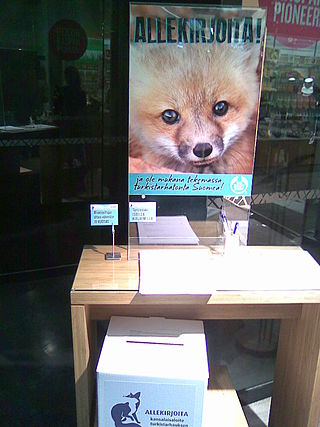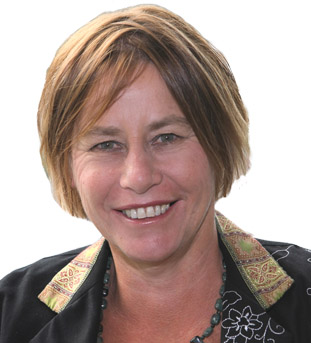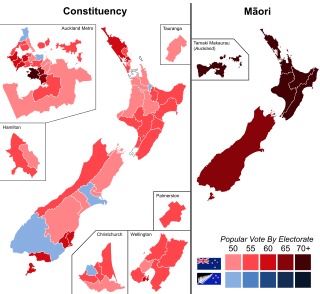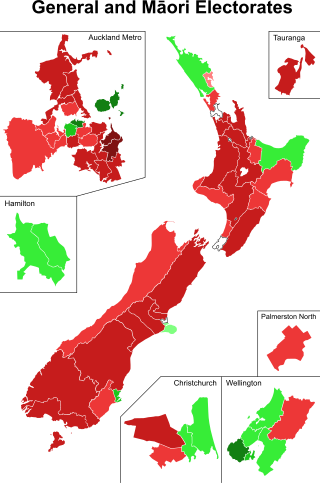
A referendum, plebiscite, or ballot measure is a direct vote by the electorate on a proposal, law, or political issue. A referendum may be either binding or advisory.

A popular initiative is a form of direct democracy by which a petition meeting certain hurdles can force a legal procedure on a proposition.
In the politics of the United States, the process of initiatives and referendums allow citizens of many U.S. states to place legislation on the ballot for a referendum or popular vote, either enacting new legislation, or voting down existing legislation. Citizens, or an organization, might start a popular initiative to gather a predetermined number of signatures to qualify the measure for the ballot. The measure is placed on the ballot for the referendum, or actual vote.
Larry David Baldock is a New Zealand politician. Before entering national politics, he was involved with Youth With A Mission and spent 15 years living in the Philippines. After returning to New Zealand in 1996, he joined Future New Zealand in 1999, standing as a candidate in the Tauranga electorate at that year's general election. In 2001, he was elected to the Tauranga City Council, and served as a list MP for United Future New Zealand from 2002 to 2005.
The Kiwi Party was a political party operating in New Zealand between 2007 and 2011. Briefly known as Future New Zealand, it was a breakaway from the United Future New Zealand party and sought to carry on the tradition of Future New Zealand. The party was formed when MP Gordon Copeland left United Future after a dispute over support for the Crimes Amendment Act 2007. At the 2008 general election, the Kiwi Party was unsuccessful, and was not re-elected to Parliament. It did not contest the 2011 general election under its own banner, but the leaders and other members stood for the Conservative Party.

Sue Bradford is a New Zealand activist, academic, and former New Zealand politician who served as a list Member of Parliament representing the Green Party from 1999 to 2009.

Sir John Phillip Key is a New Zealand retired politician who served as the 38th prime minister of New Zealand from 2008 to 2016 and as leader of the National Party from 2006 to 2016.
In Australia, referendums are public votes held on important issues where the electorate may approve or reject a certain proposal. In contemporary usage, polls conducted on non-constitutional issues are known as plebiscites, with the term referendum being reserved solely for votes on constitutional changes, which is legally required to make a change to the Constitution of Australia.

Republicanism in New Zealand is the political position that New Zealand's system of government should be changed from a constitutional monarchy to a republic.

Referendums are held only occasionally by the Government of New Zealand. Referendums may be government-initiated or held in accordance with the Electoral Act 1993 or the Citizens Initiated Referenda Act 1993. Nineteen referendums have been held so far ; fourteen were government-led, and five were indicative citizen initiatives.

The Crimes Amendment Act 2007 is an amendment to New Zealand's Crimes Act 1961 which removed the legal defence of "reasonable force" for parents prosecuted for assault on their children.

Family First New Zealand is a conservative Christian lobby group in New Zealand. It was founded in March 2006 by former Radio Rhema talkback radio host and South Auckland social-worker Bob McCoskrie who continues to be its National Director. Its 2006 stated objectives were to "seek to influence public policy affecting the rights and protection of families and promote a culture that values the family". In 2009 Victoria University religious studies professor Paul Morris said Family First was "successfully broadening the Christian agenda in New Zealand politics in a way never seen before". In 2020 Family First was described as "New Zealand's most formidable conservative campaigners". Family First was established by a trust deed under the Charitable Trusts Act 1957 in 2006, was registered as a charity in 2007 and deregistered in 2022.

The use of cannabis in New Zealand is regulated by the Misuse of Drugs Act 1975, which makes unauthorised possession of any amount of cannabis a crime. Cannabis is the fourth-most widely used recreational drug in New Zealand, after caffeine, alcohol and tobacco, and the most widely used illicit drug. In 2001 a household survey revealed that 13.4% of New Zealanders aged 15–64 used cannabis. This ranked as the ninth-highest cannabis consumption level in the world.
The Fifth National Government of New Zealand was the government of New Zealand for three parliamentary terms from 19 November 2008 to 26 October 2017. John Key served as National Leader and prime minister until December 2016, after which Bill English assumed the premiership until the National Government's defeat following the October 2017 government-forming negotiations.

The 1999 New Zealand MP reduction referendum was held during the 1999 general election on 27 November 1999. The Referendum considered two questions, in which one brought upon the question on whether New Zealand Parliament should be restructured - reducing the number of MPs from 120 to 99 members in the House of Representatives.

The 2013 New Zealand asset sales referendum is a citizens-initiated referendum that took place by postal ballot from 22 November 2013 to 13 December 2013. It was on the Fifth National (Key) government's policy to partially privatise four energy-related state-owned enterprises and reducing the government's share in Air New Zealand.

The Thirty-fourth Amendment of the Constitution Act 2015 amended the Constitution of Ireland to permit marriage to be contracted by two persons without distinction as to their sex. Prior to the enactment, the Constitution was assumed to contain an implicit prohibition on same-sex marriage in the Republic of Ireland. It was approved at a referendum on 22 May 2015 by 62% of voters on a turnout of 61%. This was the first time that a state legalised same-sex marriage through a popular vote. Two legal challenges regarding the conduct of the referendum were dismissed on 30 July by the Court of Appeal, and the bill was signed into law by the President of Ireland on 29 August. An amendment to the Marriage Act 2015 provided for marriages permitted by the new constitutional status. The act came into force on 16 November 2015; the first same-sex marriage ceremony was held on 17 November 2015.

Two referendums were held by the New Zealand Government in November/December 2015 and March 2016 to determine the nation's flag. The voting resulted in the retention of the existing flag of New Zealand.
Hobson's Pledge is a lobby group in New Zealand that was formed in late September 2016 to oppose affirmative action for Māori people. It is led by conservative politician Don Brash. The group aims to redefine the position of Māori in New Zealand. This would include removing the Māori electorates, abolishing the Waitangi Tribunal, restricting tribal powers and "remove all references in law and in Government policy to Treaty 'partnership' and 'principles'".

The 2020 New Zealand cannabis referendum was a non-binding referendum held on 17 October 2020 in conjunction with the 2020 general election and a euthanasia referendum, on the question of whether to legalise the sale, use, possession and production of recreational cannabis. It was rejected by New Zealand voters. The form of the referendum was a vote for or against the proposed "Cannabis Legalisation and Control Bill". Official results were released by the Electoral Commission on 6 November 2020 with 50.7% of voters opposing the legalisation and 48.4% in support.










